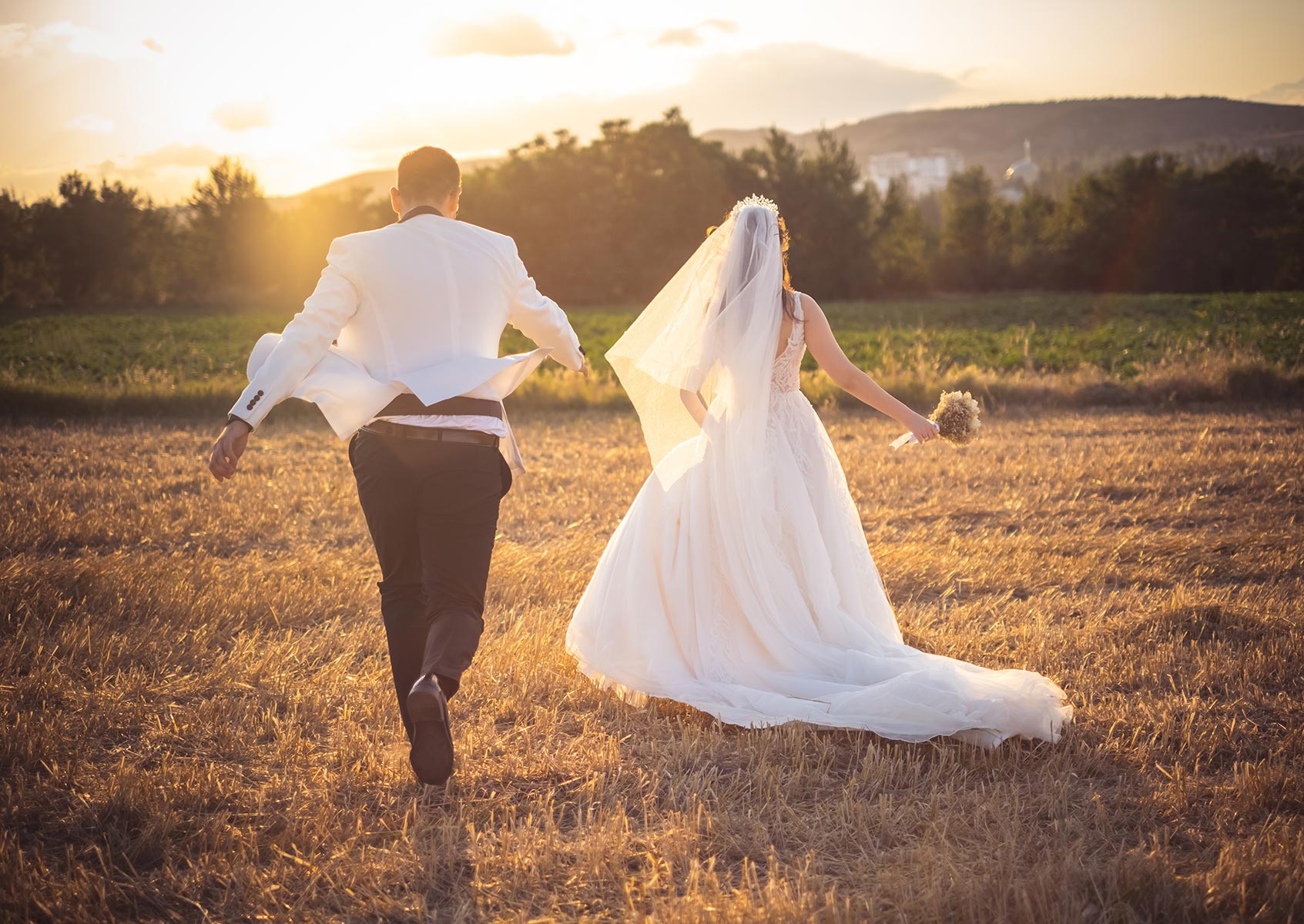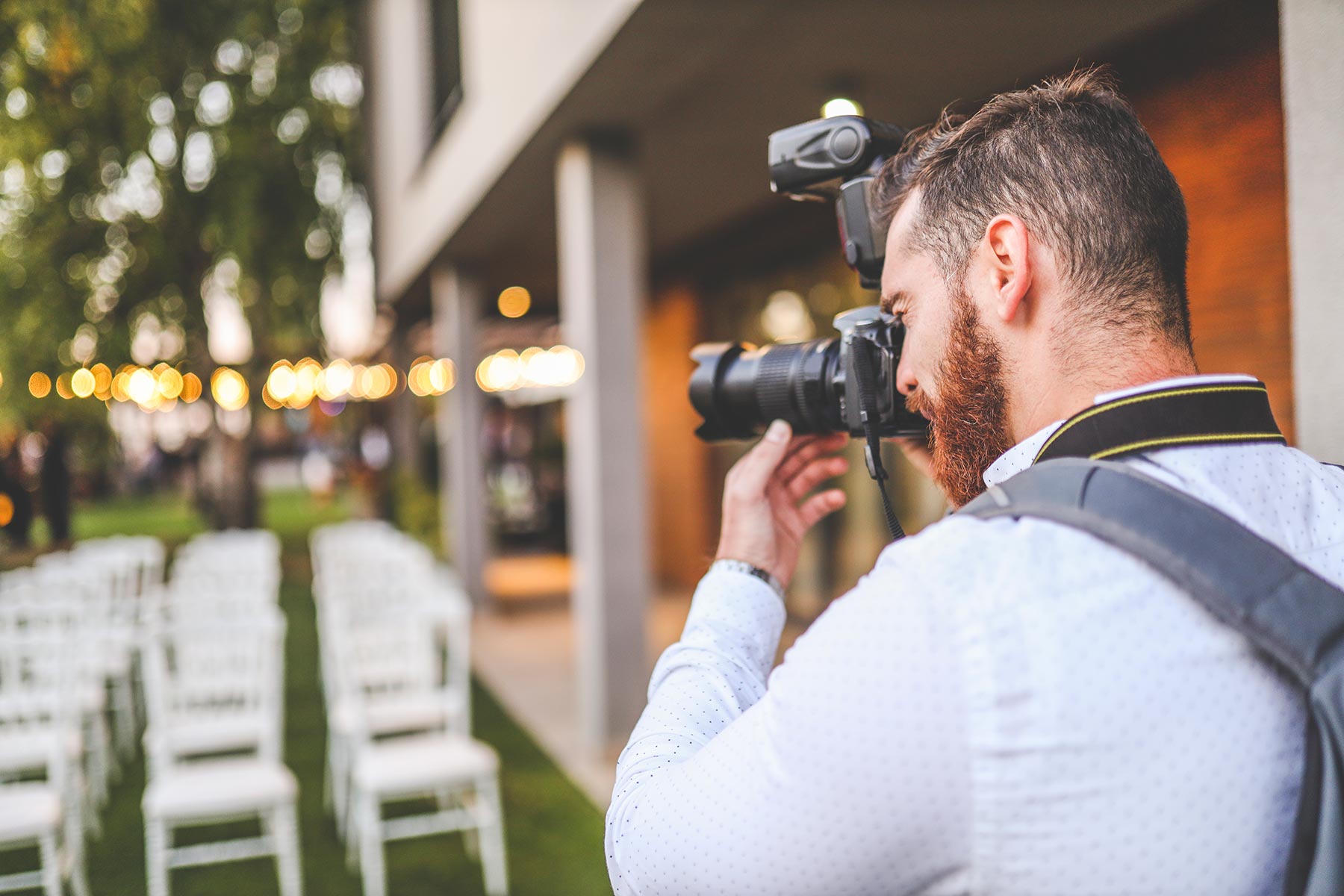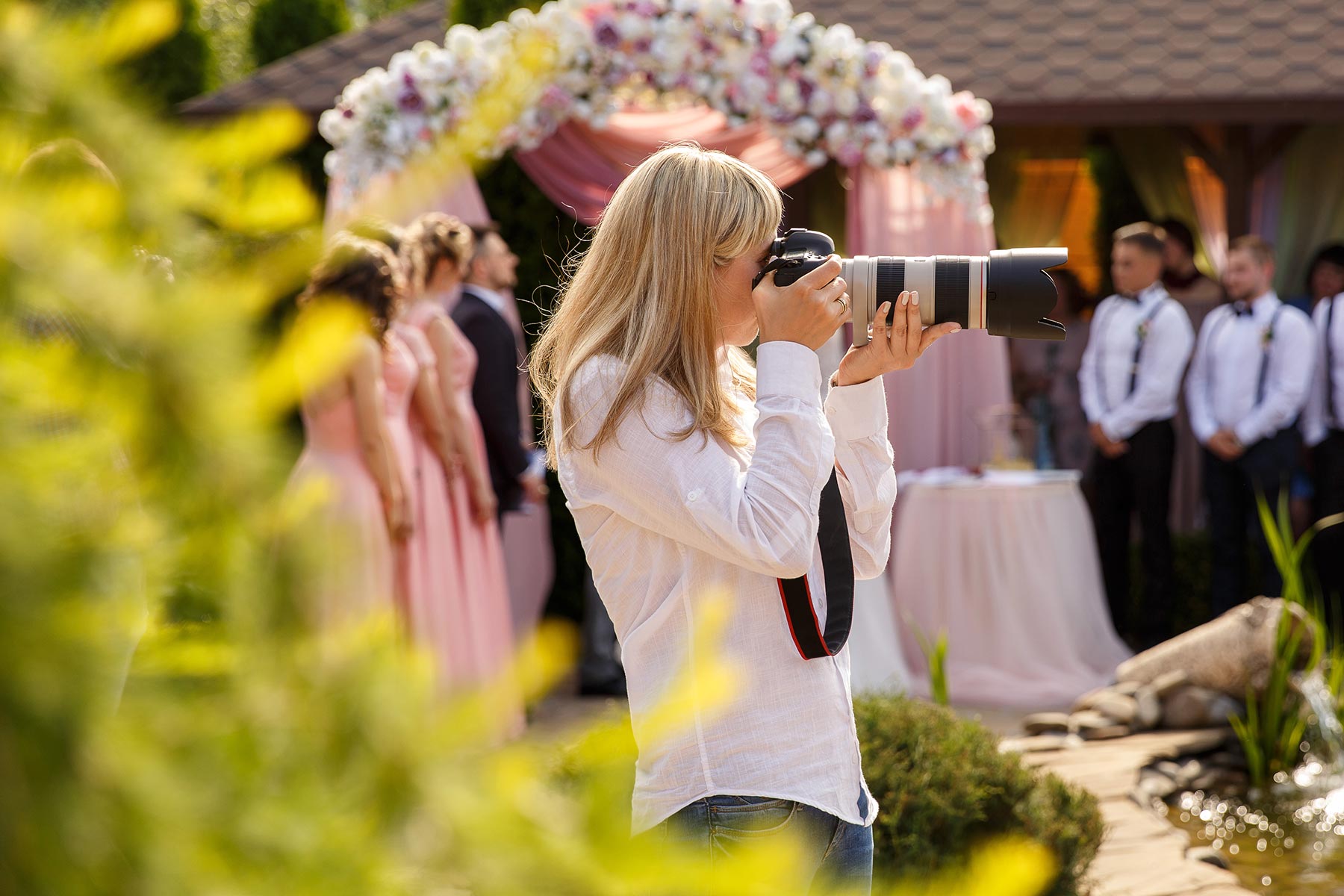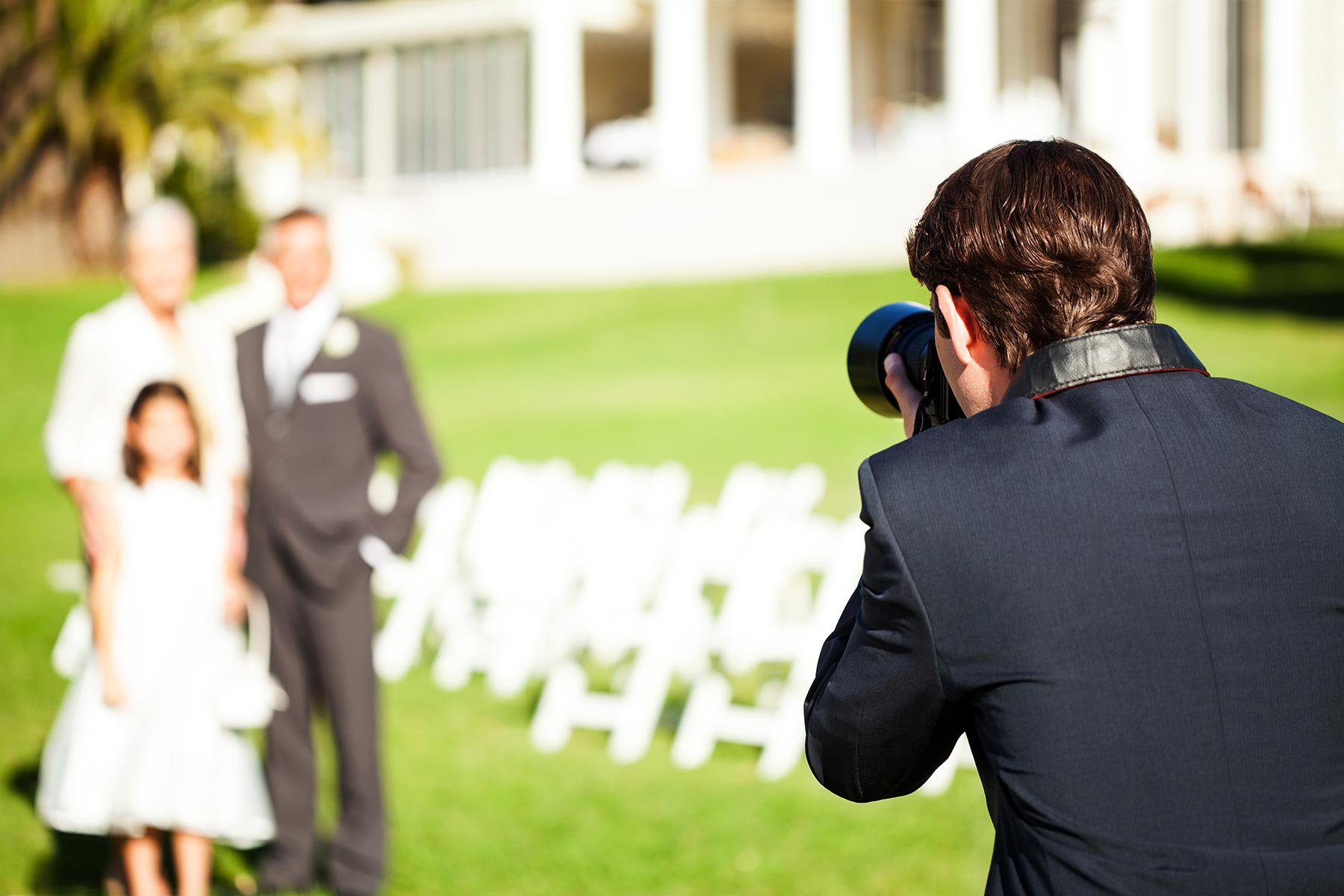Wedding season is the Super Bowl of photography
If you’re a professional photographer, this is your crunch time. You’re juggling client expectations, minute-by-minute timelines, emotional families, and rapidly shifting environments, all while trying to capture moments that only happen once.
But no matter how dialed-in your gear is or how well you work under pressure, one overlooked detail—a slip, a contract snag, a lost file—can turn a dream job into a legal nightmare.
That’s why protecting yourself from liability isn’t just smart; it’s part of the job.
We’ve gathered proven strategies and smart business practices to help you protect your business, reputation, and sanity as you step into one of the most high-pressure seasons of the year.
1. Prep Like a Producer, Not Just a Photographer

Weddings are complex productions, not photo shoots. Think like a project manager. Before the big day:
-
Visit the venue in advance. Know the lighting, layout, and where you can (and can’t) be during the ceremony.
-
Get everything in writing. Every. Single. Detail. From the deliverables to the timeline to cancellation clauses.
-
Clarify expectations with the couple. What’s “must have”? What’s “nice to have”? What’s completely off-limits?
Being buttoned up up front prevents awkward surprises (or lawsuits) later.
2. Build a Solid Contract, and Actually Use It

You’re not a lawyer, but your contract should be airtight. That means:
-
Scope of work: List what’s included, and what isn’t.
-
Delivery deadlines: Set clear expectations on how and when photos will be delivered.
-
Cancellation/reschedule policy: Be clear on fees and terms.
-
Liability clauses: Protect yourself from situations outside your control (equipment failure, illness, force majeure).
Pro tip: Never photograph a wedding without a signed contract in hand. Even for friends.
3. Scout for Hazards, Not Just Aesthetics

Photographers often end up in tight spaces, on ladders, leaning over balconies, or weaving through busy dance floors. That’s risk territory.
-
Trip hazards (your gear, cables, or light stands) can take out a guest or a toddler faster than you think.
-
Outdoor shoots? Watch for slick grass, unstable surfaces, and unpredictable weather.
-
Be aware of vendors: DJ setups, catering gear, and other team members moving around can turn a smooth shoot into a collision course.
Solution? Plan your gear layout in advance and always do a safety sweep of your setup.
4. Be Your Own Backup Plan

No one wants to talk about what happens when gear fails, memory cards corrupt, or you catch the flu the morning of a wedding. But professionals plan for it anyway.
-
Redundancy matters: Backup camera, backup lens, backup flash, and yes, backup memory cards.
-
Have a second shooter or someone on-call who can cover if something goes sideways.
-
Back up files immediately after the shoot, and again before editing.
Disaster-proofing your workflow isn’t optional when there are no do-overs.
5. Mind the Guest Interactions

You’re there to do a job not entertain guests or referee family drama. But people will still pull you aside, ask for favors, or interrupt during critical moments.
-
Set boundaries tactfully with guests who try to direct your shots.
-
Stay neutral if family tensions bubble up.
-
Stay professional even if someone is inappropriate, pushy, or just plain rude.
You don’t need to engage, you need to get the job done and avoid adding to the drama.
6. Know When to Walk Away

There are rare but real moments when things get risky, physically, legally, or ethically.
-
A venue that’s unsafe.
-
A guest who’s intoxicated and harassing you.
-
A client demanding something beyond what was agreed upon.
Know your line and be willing to walk away if your safety or your business is on the line. Document everything and refer back to your contract if things escalate.
Final Shot

You’re not just a photographer. You’re a risk manager, a planner, and a pro under pressure.
When wedding season hits, talent alone isn’t enough. You need structure, protection, and backup plans that kick in before things go wrong, because once they do, it’s too late.
So yes, clean your lenses. Charge your batteries. But more importantly, lock down your contracts, plan for contingencies, and treat liability like the real threat it is.
This season, don’t just aim for stunning shots, protect your wedding photography business like it depends on it, because it does.
